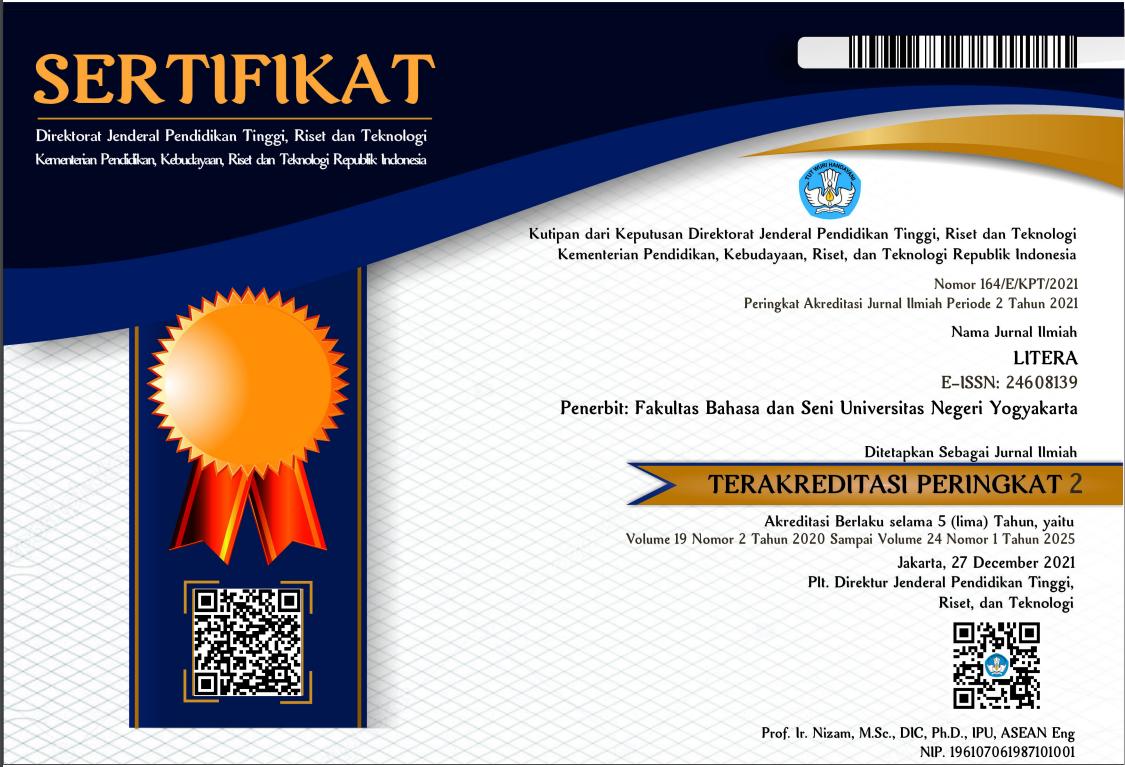VERBA BERPELENGKAP DALAM BAHASA INDONESIA SUATU KAJIAN STRUKTUR DAN SEMANTIK
Abstract
complements in Indonesian and their syntactic and semantic characteristics.
The method employed in this study was the descriptive one, which was
synchronically applied. The data sources were Indonesian textbooks for elementary
schools, junior high schools, and senior high schools, besides newspapers such as
Kompas, Republika and Pikiran Rakyat.
Morphologically, verbs with complements can be free verb bases, derived verbs,
and reduplicated verbs. On the basis of their syntactic characteristics, the verbs can
be those with noun complements (noun phrases), verbals (verbal phrases), adjectives
(adjectival phrases), adverbials (adverbial phrases), and numbers (numeral phrases).
On the basis of their semantic characteristics, the verbs can be classified into punctual
verbs, dynamic verbs, and static verbs.
Keywords: argument, complement, constituent
Full Text:
PDFDOI: https://doi.org/10.21831/ltr.v4i01.4878
Refbacks
- There are currently no refbacks.
______________________
__________________________________________________________________________________________________
Litera Journal is published by the Faculty of Languages, Arts, and Culture Universitas Negeri Yogyakarta in collaboration with Himpunan Sarjana Kesusasteraan Indonesia (HISKI)
The International Journal of Linguistic, Literature, and Its Teaching at http://http://journal.uny.ac.id/index.php/litera/ is licensed under a Creative Commons Attribution-ShareAlike 4.0 International License
__________________________________________________________________________________________________















